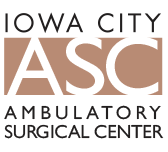Is Partial Knee Replacement Surgery For Me?
icasc advantage blog
Is Partial Knee Replacement Surgery For Me?
Posted by iowacityasc on May 21, 2020 3:26:53 PM

Partial knee replacement surgery is a minimally invasive procedure that your physician may recommend in cases of severe arthritis of the knee, or where the damage is localized to a particular part of the knee.
By making small incisions, your surgeon will be able to remove only the most damaged sections of cartilage, unlike a total knee replacement which involves removing all of the cartilage. After removing the damaged cartilage, an implant may be positioned in the joint.
This procedure is popular because it means far less discomfort and much shorter recovery times.
Though this kind of surgery has traditionally been something more common to older patients, it has become increasingly preferred in younger people who have faster recovery times.
Why Might I Need Partial Knee Replacement Surgery?
The most common cause of pain that might lead to this procedure is Osteoarthritis – wearing away of the cartilage in your knee joint. This cartilage is what allows your knee joint to move smoothly, and as it thins, the joint becomes irritated and inflamed, causing pain.
You may also feel stiffness and suffer a limited range of motion in the joint.
Ultimately, it will be up to your physician to recommend or refer you for this procedure.
It is essential to understand the risks of any surgery, no matter how minor, so be sure to discuss the issue in detail with your physician before moving ahead.
Where Would The Procedure Take Place?
You can undergo this procedure at an inpatient facility like a hospital or an outpatient facility like an ambulatory surgery center (ASC).
Most ASCs like Iowa City ASC require a referral from your physician for surgery.
The advantages of having outpatient surgery at an ASC facility include shorter hospital stays (many partial knee replacement patients are discharged on the same day) and reduced medical costs due to less time in a hospital bed.
Additionally, many patients prefer to recover at home, which may also be a factor to consider.
How Long is the Recovery Time?
Though every situation is different, a recovery time of around six to eight months is typical.
However, you could return to work in closer to two months, depending on your occupation. Again, you should always consult your physician about matters like this.
The majority of patients who undergo this operation make a good recovery.
You will be left with a small scar, but it should fade overtime to a thin white line.
Things to Ask Your Surgeon
There are risks associated with any surgery, so it’s only natural to want to ask questions before undergoing a procedure. Consider asking your physician the following:
- How much pain will I feel after the surgery, and what can I do to relieve it?
- How long should I take to recover?
- What can I do-if anything-to increase the odds of a successful surgery?
- How much physical therapy will I need to do?
- What are the risks if I put off the surgery?
There are many factors to consider when making the decision to have surgery or not. Talk to your physician with any questions you might have.
Topics: Orthopedic
Comments or Questions? Click Here!




